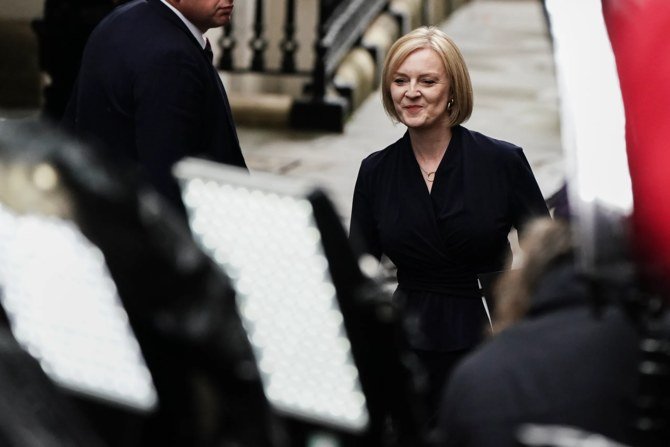
- ARAB NEWS
- 18 Jul 2025

Liz Truss was expecting a fast-paced first few days in office as UK prime minister, but little could she have anticipated the whirlwind week that has ensued since Monday.
The sad death of Queen Elizabeth on Thursday is a major moment in British history, and Truss now has to speak for the nation in the coming days, alongside the new King Charles.
The monarchy aside, Truss faces a difficult political situation. Internationally, there is the war in Ukraine. The new prime minister has to repair relations with the EU and show the world that Brexit has a coherent purpose, and must somehow forge her ties with the US at a time when the relationship with the president is at its weakest possibly since the end of the Second World War.
Yet, despite the fact that Truss faces some of the biggest policy challenges since 1945, the Cabinet she has appointed is one of the least experienced in modern times. This is bizarre given the scale of the task ahead, with her government’s in-tray extraordinarily grim economically, financially and socially.
Despite Truss winning the Conservative leadership contest on Monday by a narrower margin than expected, she has shown little willingness to appoint ministers who opposed her, and former Finance Minister Rishi Sunak has not been offered a role — a significant break with precedent. She therefore risks making exactly the same mistake as Boris Johnson in 2019 by favoring too many close allies, and not reaching out to all key wings of the Conservative Party.
Indeed, only two MPs who had publicly declared support for Sunak during the campaign have avoided being sacked and/or made it on to the Truss frontbench. They are the reappointed Secretary for Wales Robert Buckland, who switched to Truss later in the campaign, and the new Attorney General Michael Ellis.
Truss likes to compare herself to Margaret Thatcher, who also faced challenges in 1979, but her appointments are very different. New Finance Minister Kwasi Kwarteng, Foreign Secretary James Cleverly and Home Secretary Suella Braverman have much less political experience than Thatcher’s first top team in the late 1970s of Geoffrey Howe, Lord Carrington and Willie Whitelaw. Indeed, Truss is now the only person remaining in government to have served in UK Cabinets for over six years, and the only person to have served in David Cameron’s final Cabinet in 2016.
Nonetheless, the Cabinet does have significant gender and ethnic diversity. Today is the first time in UK history that no white man occupies any of the four great offices of state (10 Downing Street, Treasury, Foreign Office or Home Office).
It is inexplicable that the top team Truss has selected is not more “fit for purpose” to meet the incoming challenges.
Andrew Hammond
Moreover, the Cabinet contains no fewer than five other candidates from the recent leadership election — Penny Mordaunt, Nadhim Zahawi, Braverman, Kemi Badenoch and Tom Tugendhat. So Truss argues that this is a Cabinet that will unify the party.
One of her most controversial appointments is Jacob Rees-Mogg as business secretary. He, along with others such as Braverman, has been skeptical of the net zero agenda. Rees-Mogg is vocally in favor of fracking, has expressed concerns about “climate alarmism,” and believes that “every drop” of fossil fuel energy should be squeezed from the UK’s North Sea.
While Rees-Mogg’s appointment has been criticized by green NGOs, there will be some offsets to any big changes in UK climate policy. First off, the new finance minister Kwarteng was the main architect of Johnson’s 10-point plan to reach net zero emissions by 2050. Second, pro-net zero MP Graham Stuart has been appointed climate minister under Rees-Mogg and will attend Cabinet. Finally, Johnson has warned Truss that he is ready to defend his climate legacy, and she knows he is still highly popular with the party grassroots.
Among all the key challenges facing Truss, the most pressing is a major UK energy market intervention, which she outlined on Thursday. This is expected to cost between £100 billion ($116 billion) and £150 billion over the next 18 months. With this massive extra spending on the horizon, plus significant tax cuts, UK benchmark borrowing costs hit their highest level in more than 11 years on Tuesday, as markets worried that the prime minister’s plans to combat the cost-of-living crisis would mean a sharp increase in supply of government debt.
To add a further headache for Truss, a new opinion poll released on Tuesday also shows the opposition Labour Party extending its lead to about 15 percentage points, a seven-point increase on the previous week.
So the new prime minister is facing a growing economic and political storm. It is, therefore, inexplicable that the top team she has selected is not more “fit for purpose” to meet these challenges.